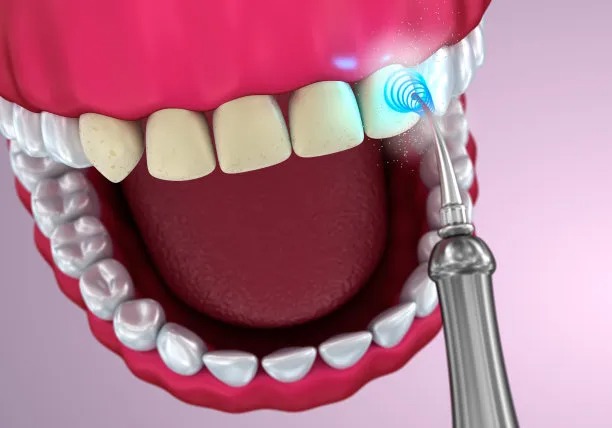Summary: Dental filling procedures are vital for maintaining oral health, particularly in combating tooth decay and damage. This article provides essential guidelines to ensure that filling procedures are safe and effective. We will explore four key aspects: proper diagnosis and treatment planning, material selection, adherence to dental hygiene protocols, and post-procedure care. Following these guidelines will help preserve oral health and enhance overall patient satisfaction. Each section will emphasize the importance of meticulous care in dental fillings and provide insights to dental professionals and patients alike.
1. Proper Diagnosis and Treatment Planning

The foundation of any successful dental filling procedure lies in accurate diagnosis and treatment planning. A comprehensive examination, including X-rays, allows the dentist to assess the extent of decay or damage and to develop a tailored treatment plan. The dentist must consider various factors, such as the patients age, dental history, and any pre-existing medical conditions, to provide the most effective care.
Moreover, clear communication with the patient is essential during this phase. Dentists should clearly explain the diagnosis and available treatment options, ensuring that patients understand the implications of each choice. This not only fosters trust but also encourages patient involvement in decision-making, which can lead to better compliance and satisfaction.
Lastly, establishing realistic expectations is crucial. Dentists should inform patients about the anticipated outcomes, duration of the procedure, and possible discomforts. This transparency helps patients mentally prepare and reduces anxiety, thus contributing to a smoother dental experience.
2. Material Selection for Fillings
Choosing the right filling material is paramount in achieving optimal results. Several types of materials exist, including amalgam, composite resin, gold, and porcelain, each with distinct properties and advantages. Amalgam is known for its durability, making it a preferred choice for back teeth, while composite resin can be color-matched to the natural tooth, ideal for aesthetic considerations.
The selection process should also consider the patients preferences, budget, and oral health needs. For instance, a patient with allergies may need to avoid certain materials. Dentists should provide information about each option, including longevity, sensitivity, and cost, thus empowering patients during their selection.
Furthermore, advancements in dental technology have introduced innovative materials that provide enhanced strength and aesthetics. Keeping abreast of these developments enables dentists to offer the best solutions tailored to individual patient requirements, ultimately enhancing the effectiveness and longevity of dental fillings.
3. Adherence to Dental Hygiene Protocols
Strict adherence to dental hygiene protocols during filling procedures is critical for success. Sterilization of instruments and maintaining a clean environment reduces the risk of infections and complications. Dental practitioners must follow stringent protocols to ensure that all tools are properly sterilized and that the workspace is free from contaminants.
In addition to sterilization, proper technique during the filling process is essential. This includes correctly isolating the affected tooth with a rubber dam to prevent moisture contamination, which can lead to compromised bonding and product longevity. Dentists should also apply appropriate layering techniques when filling cavities to enhance the strength and resilience of the restoration.
Lastly, staff training and continuous education in infection control and the latest filling techniques ensure that dental professionals are well-equipped to handle procedures safely and effectively. A well-trained team can respond to any challenges that arise during the procedure, thereby safeguarding the patients health.
4. Post-Procedure Care and Follow-Up
Post-procedure care is just as important as the filling process itself. After a dental filling, patients should receive clear instructions on care practices such as avoiding hard foods for a specified period and maintaining proper oral hygiene. Educating patients about potential complications, such as sensitivity or changes in the filling, can help them recognize issues early.
Regular follow-up appointments are also vital in monitoring the health of the filled tooth and ensuring that the filling remains intact. These visits allow the dentist to assess the effectiveness of the filling and to address any concerns the patient may have. Early detection of problems can prevent further complications and preserve oral health.
Additionally, reinforcing the importance of routine dental check-ups encourages patients to prioritize their oral health for the long term. Establishing a strong relationship between the dentist and patient enhances compliance with oral health maintenance and fosters a collaborative approach to dental care.
Summary: In summary, safe and effective dental filling procedures rely on accurate diagnosis and treatment planning, careful material selection, adherence to strict hygiene protocols, and thorough post-procedure care. Each of these elements plays a crucial role in preserving oral health and ensuring patient satisfaction. By following these essential guidelines, both dental professionals and patients can achieve optimal outcomes in dental care.
This article is compiled by Vickong Dental and the content is for reference only
Vickong Dental
Vickong Dental is a large medical group established in Hong Kong in 2008 by professors from well-known medical universities in Guangdong and Hong Kong, as well as medical doctors from key national '985' universities (including Master's supervisors and senior professors). The chain of branches brings together expert dentists with PhDs and Master's degrees from Hong Kong and Mainland China, committed to providing high-quality dental treatment.
"Vickong Dental Practices the University Motto of 'Healing and Serving Society,' with a Stable Operation for Sixteen Years. It Has Been honored with Hong Kong Enterprise Leaders's Choice,' and is a Global Trusted Implant Center for the Nobel Implant System. Recommended by Hong Kong Metro Broadcast and Guangdong Television, it Serves Customers from Over Thirty Countries and Regions, Gaining the Trust and Favor of Citizens from the Guangdong-Hong Kong-Macau Greater Bay Area and Surrounding Cities.

Thousands of customers' unanimous praise
The most recognized and highly recommended dental service by customers in the Guangdong-Hong Kong-Macau Greater Bay Area
We Ensure You Receive Detailed Care and Attention Here
Hong Kong standards, Shenzhen prices, Your Trusted English-speaking dentists

Vickong Dental Medical-Grade Instrument Disinfection Process
Vickong Dental Medical-Grade Instrument Disinfection Process

Vickong Dental Chain: A Warm and Comfortable Environment for Treatment






Appointment Hours

Q&A
Why choose Vickong Dental?
Vickong Dental practices the university motto 「Medicine to Benefit Society」, with each branch bringing together highly qualified dentists with doctoral and master’s degrees from Hong Kong and the Mainland, and has maintained seventeen years of steady operation。Recipient of 「2024 Hong Kong Enterprise Leaders Brand」, 「2025 Hong Kong Enterprise Leaders Brand」, a Nobel Biocare Global Trusted Implant Center, and a brand recommended by Metro Radio Hong Kong and Guangdong TV。
To date, we have served customers from more than thirty countries and regions,earning exceptionally high word-of-mouth recognition and trusted recommendations from residents across the Guangdong-Hong Kong-Macao Greater Bay Area and surrounding cities
We have eight major branches in Zhuhai、Shenzhen,and a consultation and service assurance center in Hong Kong,so you can book a free consultation at any time for any questions,which is very reassuring.
If I do not accept the quotation after the CT scan, will I be charged??
No! As long as the actual treatment has not started, you will not be charged any fees.
Will there be any additional charges during the treatment process?
No, there won’t be any additional charges. Before treatment begins, we will clearly explain the treatment plan and its corresponding fees. Only after the patient agrees and signs the consent form will we proceed with the dental service.
Can I pay in Hong Kong dollars?
Yes. Vickong Dental accepts payment in Hong Kong dollars. The amount will be converted based on the exchange rate of the day, and the applicable rate will be clearly communicated to you in advance.
Can I reschedule my appointment at any time?
Yes. Please contact us via **WeChat** or **WhatsApp** as early as possible, providing your original appointment time and details, along with your preferred new date and time slot for rescheduling.













